America’s hegemonic military agenda in the Middle East has reached a dangerous threshold.
The assassination of IRGC General Soleimani ordered by the President of the United States on January 3, 2020 is tantamount to an Act of War against Iran.
President Donald Trump accused Soleimani of “plotting imminent and sinister attacks”: “We took action last night to stop a war. We did not take action to start a war…. we caught him in the act and terminated him.”
US Defense Secretary Mark T. Esper described it as a “decisive defensive action” while confirming that the operation ordered by POTUS had been carried out by the Pentagon. “The game has changed” said Esper.
What the media has failed to acknowledge is General Soleimani’s central role in countering ISIS-Daesh and Al Qaeda terrorists in both Iraq and Syria.
The Iranian Revolutionary Guard Corps-Quds Force (IRGC) under the helm of General Soleimani consisted in waging a real counter-terrorism campaign against ISIS-Daesh mercenaries, who from the outset were funded, trained and recruited by the US and its allies.
Trump’s action plan to “stop a war” consists in “protecting” America’s ISIS and Al Qaeda affiliated foot-soldiers.
US Extrajudicial Assassinations
While the assassination of General Soleimani constitutes a criminal act on the part of President Trump, the US practice of extrajudicial assassinations of foreign politicians has a long history.
What distinguishes the assassination of General Soleimani from previous extrajudicial killings, is that the president of the US has formally announced that he gave the order.
This sets a dangerous precedent. It was “overt” rather than “covert”, i.e. a covert operation by the CIA or by a US sponsored Al Qaeda affiliate acting on behalf of Washington.
It is important to note that it was not Trump but in fact Obama who formalized (“legalized”) the practice of extra-judicial assassination (ordered by the president):
And if the president [Obama] can kill anyone, including US citizens, without judicial review, what power does he not have? Any but the most formal distinction between democracy and presidential dictatorship is swept away. (Joseph Kishore, wsws.org, October 31, 2012)
Trump’s Response: More Troops to the Middle East
While the Pentagon announced that it is “sending thousands of additional troops to the Middle East”, a unanimous vote in Iraq’s parliament was reached demanding the immediate withdrawal of all US forces.
The legislation requires the Iraqi government to “end any foreign presence on Iraqi soil and prevent the use of Iraqi airspace, soil and water for any reason”.
Note: Death to America: refers to the US Government, Not the American People
Backflash: A Digression. The Obama Air Raids (2014-2017)
Concurrently the Iraqi parliament suspended the corrupt 2014 agreement with the Obama administration which invited the US to lead a fake counterterrorism operation directed against the Islamic State (ISIS-Daesh), made up of mercenaries who are funded, trained and recruited by US-NATO, with the support of Saudi Arabia and the UAE.
The decision of the Iraqi parliament is in this regard fundamental. This operation was used by the Obama administration as a pretext to justify a third phase of the Iraq War (1991, 2003, 2014). Initiated in June 2014 by Obama under the disguise of a counterterrorism operation, a new phase of killing and destruction was launched.
Why was the US Air Force unable to wipe out the Islamic State which at the outset was largely equipped with conventional small arms not to mention state of the art Toyota pickup trucks?
 From the very outset, Nobel Peace Laureate Barack Obama’s air campaign was NOT directed at ISIS. The evidence confirms that the Islamic State was not the target. Quite the opposite. The air raids were intended to destroy the economic infrastructure of Iraq and Syria.
From the very outset, Nobel Peace Laureate Barack Obama’s air campaign was NOT directed at ISIS. The evidence confirms that the Islamic State was not the target. Quite the opposite. The air raids were intended to destroy the economic infrastructure of Iraq and Syria.
Look at the following image which describes the Islamic State convoy of pickup trucks entering Iraq fromn Syria and crossing a 200 km span of open desert which separates the two countries.
This convoy entered Iraq in June 2014.
What would have been required from a military standpoint to wipe out an ISIS convoy with no effective anti-aircraft capabilities?
Without an understanding of military issues, common sense prevails. 
If they had wanted to eliminate the Islamic State brigades, they could have “carpet” bombed their convoys of Toyota pickup trucks when they crossed the desert from Syria into Iraq in June 2014.
The Syro-Arabian Desert is open territory (see map right). With state of the art jet fighter aircraft (F15, F22 Raptor, F16) it would have been –from a military standpoint– “a piece of cake”, a rapid and expedient surgical operation, which would have decimated the Islamic State convoys in a matter of hours.
But if that had happened, they would not have been able to implement their “Responsibility to Protect” (P2R) bombing campaign over a three year period (2014-2017).
Instead what we witnessed were drawn out relentless air raids and bombings which culminated with the so-called liberation of Mosul (February 2017) and Raqqa (October 2017) by the US led coalition.
And we were led to believe that the Islamic State had the upper hand and could not be defeated by a powerful US led military coalition of 19 countries.
The people of Iraq and Syria were the targets. Obama’s bombing raids were intent upon destroying the civilian infrastructure of Iraq and Syria.
ISIS-Daesh were never the target of US aggression. Quite the opposite. They were protected by the Western military alliance.
US Troop Withdrawal: Yankee Go Home (2020)
While a major US troop withdrawal is unlikely in the foreseeable future, “America’s War on Terrorism” is in jeopardy. Nobody believes that America is going after the terrorists.
In Iraq and Syria, everybody knows that all Al Qaeda, ISIS-Daesh affiliated entities are supported by US-NATO.
The “Yankee Go Home” process has commenced. The US is not only being ousted from Iraq and Syria, its strategic presence in the broader Middle East is also threatened. And these two processes are intimately related.
In turn, several of America’s former allies including Turkey, Kuwait, Oman, Qatar and Egypt have normalized their relations with Iran.
Trump’s Punitive Bombings. Will They be Carried Out?
In recent developments, Trump has warned that if Tehran responds to the assassination of General Soleimani, he will “target 52 Iranian sites” intimating that they would be “HIT VERY FAST AND VERY HARD.”
Donald Trump wants to hit back. But he has a serious logistical problem on his hands of which he may not even be aware of.
Normally a punitive operation of this nature directed against Iran would be entrusted to USCENTCOM’s forward headquarters in the Middle East located at the Al Udeid Air Force base in Qatar.
With 11,000 US military personnel, the al-Udeid Air Force base close to Doha is “one of the U.S. military’s most enduring and most strategically positioned operations on the planet” (Washington Times). It has led and coordinated several major Middle East war theaters including Afghanistan (2001), Iraq (2003). It was also involved in Syria.
But there is a problem: The forward base of USCENTCOM at the al-Udeid Air Force base is in Qatar. And since June 2017 Qatar has been “sleeping with the enemy”. Qatar has become a staunch ally of Iran.
What both the media, as well as foreign policy and military analysts fail to acknowledge is that US CENTCOM’s Forward Base headquarters at the al-Udeid military base de facto “lies in enemy territory”. And it would seem that POTUS is totally unaware of this situation.
“Qatar has always been an exceptional partner, and this base from which we are operating is a great base, and CENTCOM has no intention of moving anywhere,” said CENTCOM’s deputy commander, Chance Saltzman.
More recently, they have been discussing the establishment of Iran-Qatar bilateral military ties.
Having decided that Al Udeid (located in enemy territory) could not be moved to another location in the Middle East, the Pentagon then envisaged a scenario of moving Al Udeid air and space operations to South Carolina: “to 7,000 miles away in South Carolina”. It was a simulation. “The temporary switch” lasted only 24 hours.
Lessons Learnt: You cannot effectively “wage war” in the Middle East without a “Forward Base” in the Middle East. This “South Carolina Test” borders on ridicule.
Are US military planners desperate?
Since May 2017, following the break up of the Gulf Cooperation Council (GCC) the Pentagon has NOT BEEN ABLE TO MOVE USCENTCOM FORWARD BASE (including its air force striking capabilities) OUT OF ENEMY TERRITORY (QATAR) to a “friendly location” (e.g. Saudi Arabia, Israel) in the broader Middle East region.
Military analysts now admit that in the case of a conflict with Iran, Al-Udeid would be an immediate target. “The base’s defence system is said to be ill-equipped to defend itself against the low-flying cruise missiles and drones…”
Mr. President: How on earth can you launch your punitive bombings on Iran from the territory of a close ally of Iran?
From a strategic point of view it does not make sense. And this is but the tip of the iceberg.
While the bombing and missile attacks can be dispatched from other US military bases in the Middle East (see diagram below) as well as from Diego Garcia, US aircraft carriers, submarines, etc, the regional USCENTCOM Forward Base at Al-Udeid, Qatar, plays a key role in the command structure in liaison with USCENTCOM headquarters in Tampa, Florida, and US Strategic Command (USSTRATCOM) at the Offutt Air Force Base, Nebraska.
Source: Statista
While Qatar and the US have a longstanding bilateral cooperation agreement pertaining to the al-Udeid Air Force base, Qatar has military cooperation agreements not only with Iran but also with Hamas and Hezbollah, all of which are “enemies” of the USA:
The challenge for Washington is that while Qatar hosts al-Udeid, it’s also friendly with the Gaza-based Islamic Resistance Movement (Hamas), it is close to the Hezbollah’s leadership … [Qatar also] has cozy relations with Iran. Indeed, if Qatar didn’t host America’s largest air base in the Middle East, it would be under pressure from the U.S. to cease much of this behavior.”
And to top it off, Qatar is also friends with Russia. A military technical cooperation agreement pertaining to air defense was signed with Moscow, immediately following Qatar’s rift with Saudi Arabia in June 2017.
Turkey’s Incirlik Air Force Base
“A sleeping with the enemy situation” also prevails with regard to Turkey’s Incirlik Air Force base which was established in the 1950s by the US Air Force. Incirlik has played a strategic role in all US-NATO led operations in the Middle East.
With about five thousand airmen, the US Air Force is now hosted in a country (aka Turkey) which is an ally of both Russia and Iran. Turkey and Iran are neighbouring states with friendly relations. In contrast, US and Turkish supported rebels are fighting one another in Northern Syria.
In mid-December 2019, Turkey’s foreign minister Mevlüt Çavuşoğlu dropped a bombshell, intimating “that the United States could be barred from using two strategic air bases [Incirlik and Kurecik] in retaliation to possible US sanctions against his country” regarding Turkey’s purchase of the Russian S-400 missile defence system.
America’s Conventional Warfare Capabilities
For several reasons, US hegemony in the Middle East has been weakened in part as a result of the evolving structure of military alliances.
America’s command capabilities have been weakened. Two of the region’s largest strategic Air Forces bases, namely Incirlik (Turkey) and Al-Udeid (Qatar) are no longer under the control of the Pentagon.
While war against Iran remains on the drawing board of the Pentagon, under present conditions, an all out Blitzkrieg (conventional theater war) involving the simultaneous deployment of ground, air and naval forces is an impossibility.
While the US does not have the ability to carry out such a project, various forms of “limited warfare” have been contemplated including targeted missile attacks, so-called “bloody nose operations” (including the use of tactical nuclear weapons), as well as acts of political destabilization and color revolutions (which are already ongoing) as well as economic sanctions, manipulations of financial markets and neoliberal macroeconomic reforms (imposed via the IMF and the World Bank(.
The Nuclear Option against Iran
And it is precisely because of US weaknesses in the realm of conventional warfare that a nuclear option could be envisaged. Such an option would inevitably lead to escalation.
Ignorance and stupidity are factors in the decision making process. According to foreign policy analyst Edward Curtin “Crazy people do crazy things”.
Who are the crazy people in key decision-making positions?
Trump foreign policy advisers: Secretary of State Mike Pompeo, national security adviser Robert O’Brien and Brian Hook, (Special Representative for Iran and Advisor to Pompeo), could “advise” President Trump to authorize a “bloody nose operation” against Iran using tactical (B61 bunker buster) nuclear weapons, which the Pentagon has categorized as “harmless to civilians because the explosion is underground”.
The bloody nose operation” as designated by the Pentagon, conveys the idea of a military op (using a low yield “more usable” tactical nuclear weapon) which allegedly “creates minimum damage”. It’s a lie: the tactical nuclear weapon has an explosive capacity between one third and 12 times a Hiroshima bomb.
Tensions between the United States and Iran are spiraling toward a military confrontation that carries a real possibility that the United States will use nuclear weapons. Iran’s assortment of asymmetrical capabilities—all constructed to be effective against the United States—nearly assures such a confrontation. The current US nuclear posture leaves the Trump administration at least open to the use of tactical nuclear weapons in conventional theaters. Some in the current administration may well think it to be in the best interest of the United States to seek a quick and decisive victory in the oil hub of the Persian Gulf—and to do so by using its nuclear arsenal.
We believe there is a heightened possibility of a US-Iran war triggering a US nuclear strike…
Of significance, the use of tactical nukes does not require the authorization of the Commander in Chief. That authorization pertains solely to so-called strategic nuclear weapons.
The US Air Force’s tactical nuclear weapons arsenal is stored and deployed in five non-nuclear European countries including Germany, Belgium, Netherlands, Italy, Turkey at military bases under national command.
According to Hans Kristensen and Matt Korda (Bulletin of Atomic Scientists, 2019 report), the US possesses an estimated 230 tactical nuclear weapons of which 180 are deployed in the five non-nuclear European countries. Some 50 B61 bunker buster bombs with nuclear warheads (gravity bombs) are stored and deployed at the Incirlik air force base which is under Turkey’s jurisdiction. (see table above)
Conclusion:
- A US president committed to war crimes.
- A failing “War on Terrorism” narrative,
- Weakened military command structures,
- Failing alliances,
- Sleeping with the enemy,
- Unpredictable foreign policy analysts,
- Deception and mistakes.
At this juncture: The US’ most powerful weapon remains dollarization, neoliberal economic reforms and the ability to manipulate financial markets.
The original source of this article is Global Research

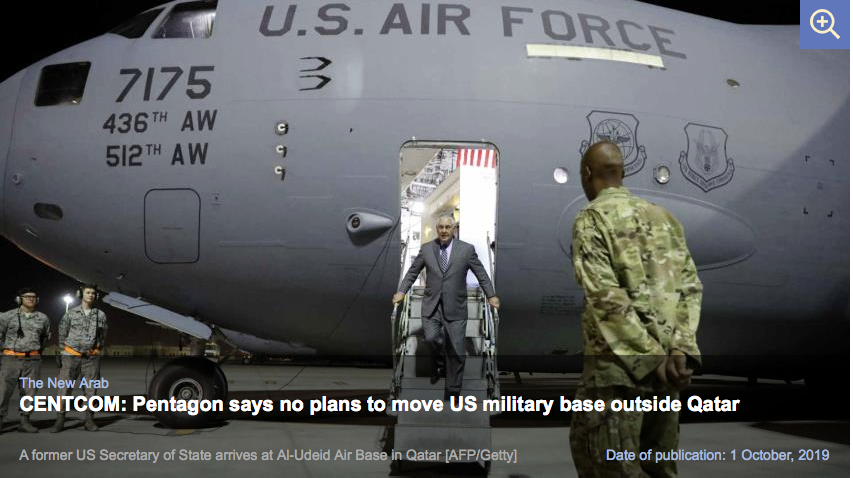




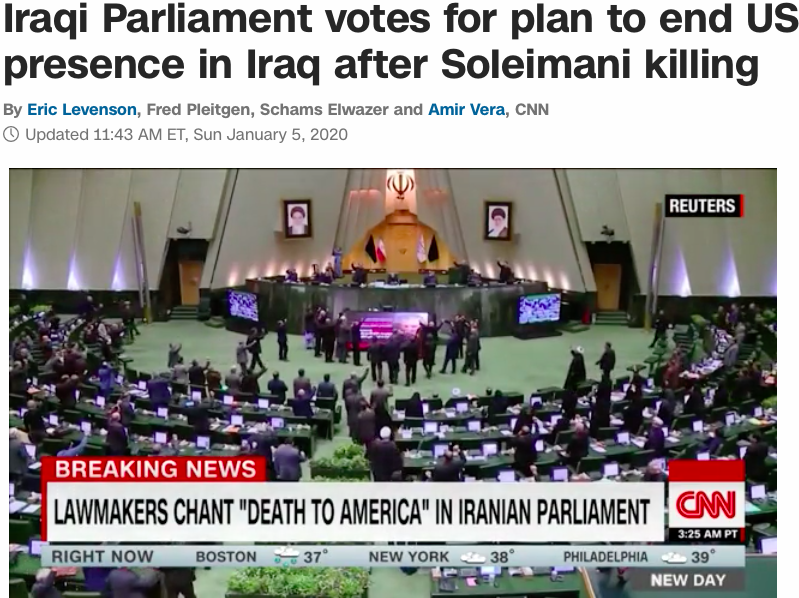
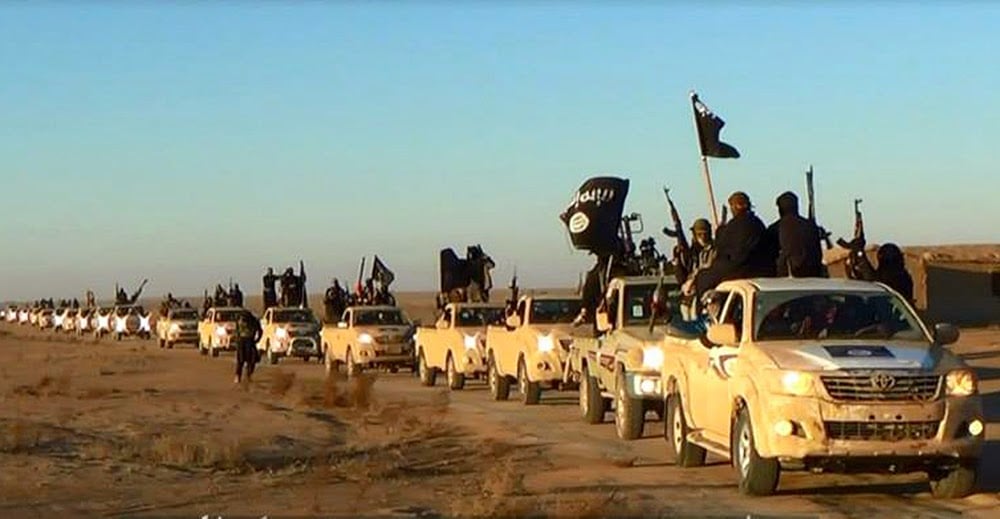

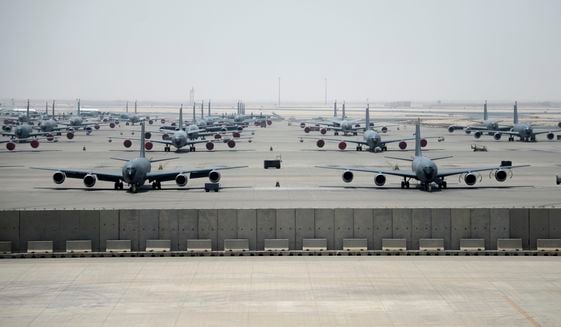
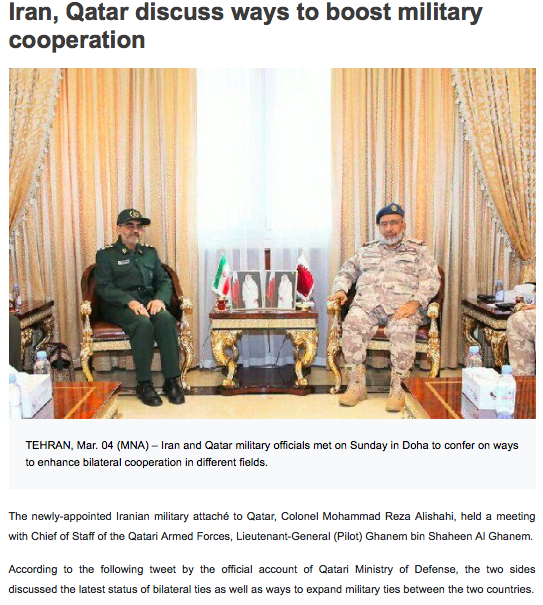
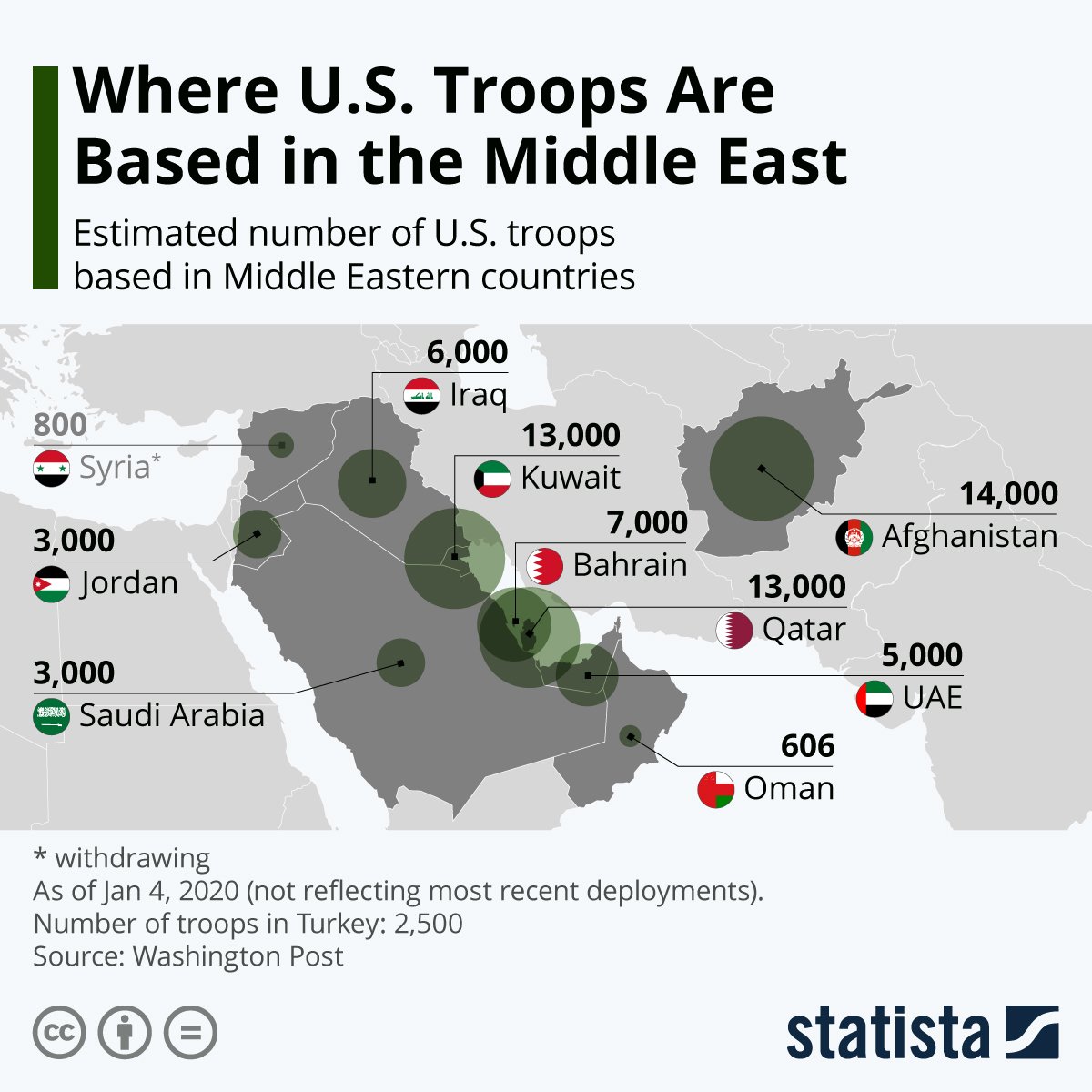


/https://www.niagarafallsreview.ca/content/dam/thestar/news/canada/2021/09/25/huawei-executive-meng-wanzhou-receives-warm-welcome-upon-return-to-china/_1_meng_wanzhou_2.jpg)













No comments:
Post a Comment
Note: Only a member of this blog may post a comment.